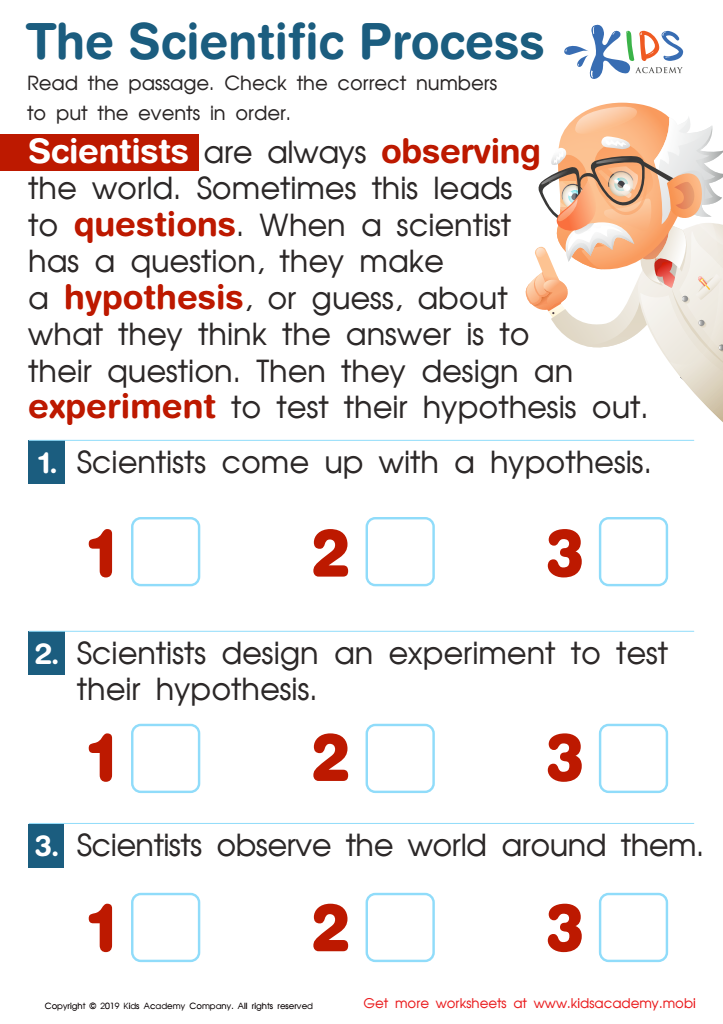Interpreting data/results Worksheets for Kids
1 filtered results
-
From - To


The Scientific Process Worksheet
Question/Answer
How to train the Interpreting data/results skill in Grade 2 students learning about Reading Non-Fiction?
To train Grade 2 students in interpreting data/results within non-fiction reading, introduce simple charts, graphs, or tables related to a text. Guide them in making observations, asking questions about the data, and linking it to the text's main idea. Use hands-on activities like creating simple surveys and graphing class preferences to make data interpretation engaging and relevant to their experiences.
How does the mastery of the Interpreting data/results skill affect a student's performance at an early age?
Mastering the skill of interpreting data/results at an early age significantly enhances a student's performance by improving their analytical thinking, critical reasoning, and problem-solving abilities. This skill helps them better understand and engage with academic content, fosters curiosity, and lays a strong foundation for future learning, particularly in STEM fields.
What does the Interpreting data/results skill mean when it comes to Grade 2 Reading Non-Fiction learning?
In the context of Grade 2 Reading Non-Fiction learning, the "Interpreting data/results" skill refers to the ability of students to understand and draw conclusions from information presented in various forms such as charts, diagrams, timelines, and graphs. It involves recognizing patterns, making inferences, and summarizing findings based on the non-fiction content they are exploring.
 Assign to the classroom
Assign to the classroom











